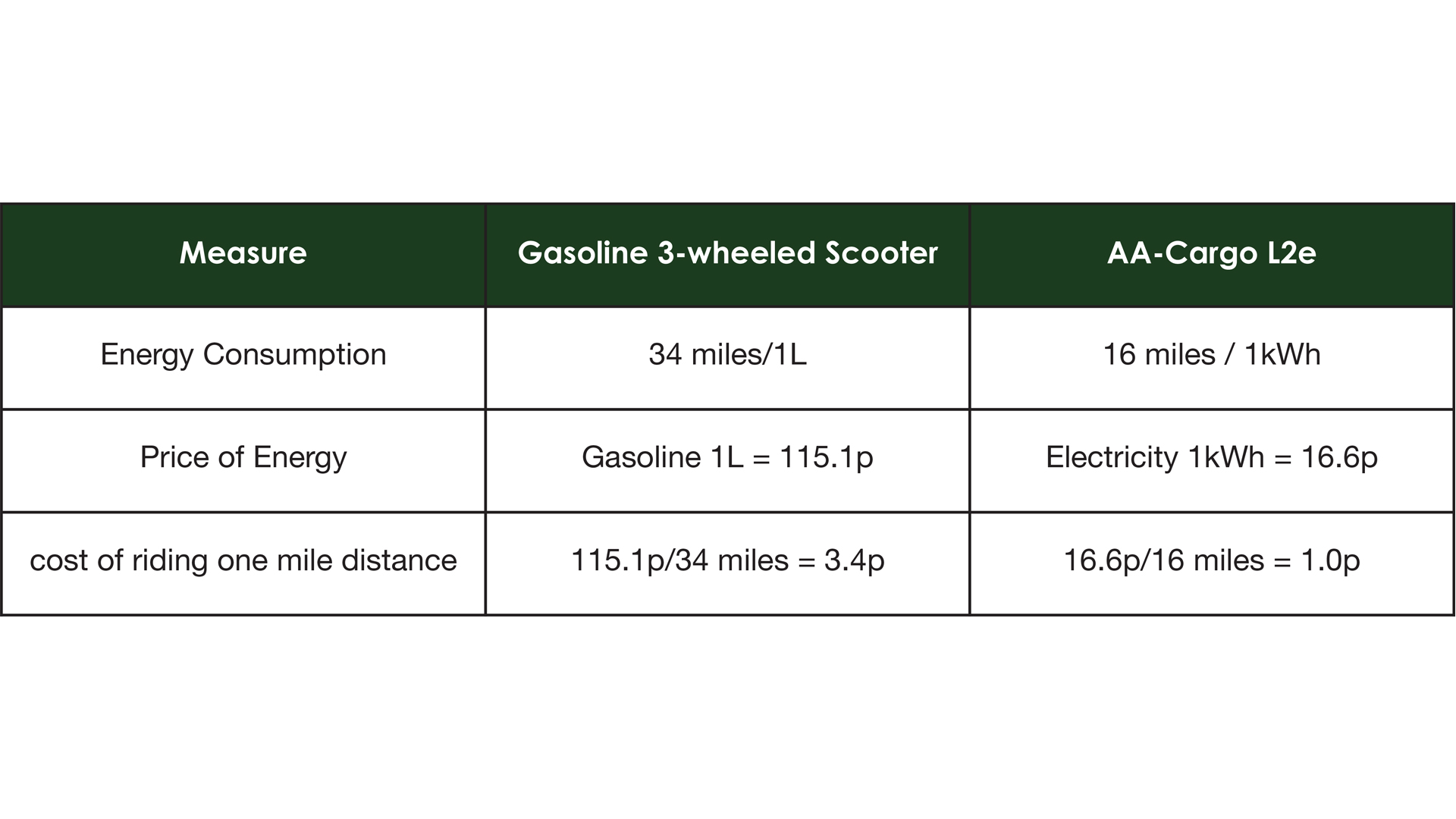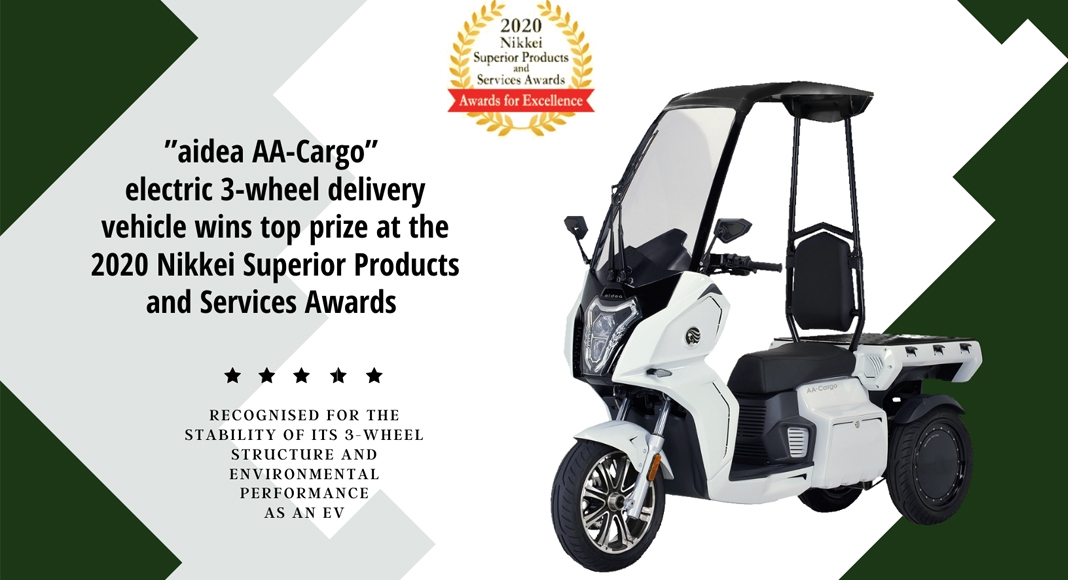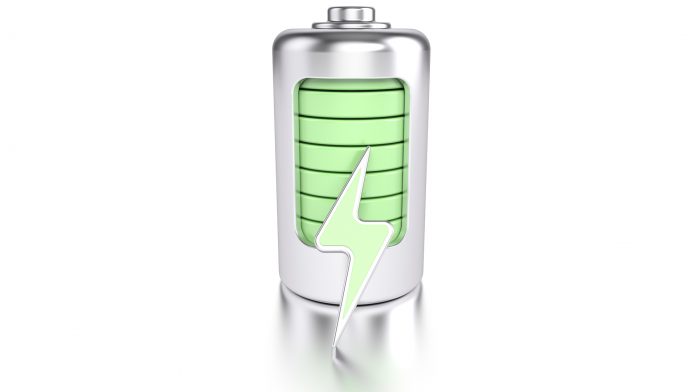Andrew Firmston-Williams, Founder & CEO of EVMI Solutions Limited, explains how their innovative logistics solutions can solve the emissions crisis.
Approximately 34% of CO2 emissions in the UK, 120 million tonnes a year, comes from the transport sector. This includes private and commercial vehicles, freight, cars, and ships. Pollution and air quality in London and around the UK has long been on the radar and various measures and steps have been taken to tackle this ever- present problem. However, COVID-19 and the subsequent lockdowns have highlighted one sector which has grown exponentially during this period – with millions of people unable or afraid to leave their houses due to existing health conditions the home delivery market has flourished.
Whether this be takeaways, supermarket food deliveries, or online shopping purchases, they all require ‘last-mile delivery’ to the consumer’s home. There are several companies and schemes tackling the problem by adopting electric or hybrid vans and lorries, but so far there is no widespread mechanical solution to the thousands of scooters around the country and in our cities that are making short, energy inefficient journeys.
Efficient urban logistics solution against emissions
At EVMI Solutions we are looking to tackle this challenge with a range of fully electric three-wheel delivery vehicles which are stable, agile, and nimble and will help with making the air we breathe cleaner for everyone. With three vehicle specifications to choose from, all have been designed to fill the space of delivery scooters. As they are all of narrow width, they can easily navigate congested streets, allowing couriers and delivery drivers to make the same journeys at the same pace but not polluting their immediate environment.

The compact size of electric cargo scooters can also solve the urban delivery trilemma of scarce parking, narrow roads and traffic congestion. This is therefore an extremely efficient solution for delivery operators to transport smaller loads for express delivery in the first mile and last mile.
Phrases such as ‘carbon-neutral’ are firmly embedded in the public’s conscience these days, and most are aware that petrol and diesel vehicles emit harmful carbon dioxide into the atmosphere. CO2 released into the atmosphere contributes to climate change which can trigger extreme weather events, sea level rise, floods, and drought.
Clean air strategy and emissions control
The Mayor of London’s and the UK Government’s clean air strategy has also identified nitrogen oxides as a clear and present danger to the health of UK citizens. All combustion processes produce nitrous oxides (NOx), primarily made up of two pollutants – nitric oxide (NO) and nitrogen dioxide (NO2). NO2 is of most concern due to its impact on health, but NO easily converts to NO2 in the air, so it is essential to control emissions of all NOx.
These gases are formed and released into the air when fuel is burned at high temperatures, for example by diesel and petrol cars. Evidence shows breathing in high levels of NO2 can inflame the airways in our lungs and, over a long period, affect how well our lungs work. In a shocking statistic released in a study by the body of London Councils, it is revealed that ‘air pollution has a negative effect on a number of different aspects of human health. In London alone, 9,400 premature deaths annually are attributed to poor air quality, at a cost of between £1.4bn and £3.7bn a year to the health service. One in three schools are also close to roads with illegal levels of NO2 pollution’.
Another surprisingly damaging aspect of congestion and heavy traffic is ‘idling’, where combustion-engine vehicles sitting in traffic or at traffic lights increase the levels of harmful emissions. The introduction of a ‘stop/start’ feature in latest engines, turning off the engine when stationary, helps to mitigate this but petrol scooters typically have no such functionality. All the vehicles in our fleet have zero emissions whether on the move, ‘idling’, or stationary.
As a company, we feel it is our responsibility to take care about not only the environmental big picture, but also the health and wellbeing of our immediate community. Introducing 100% electric fleet vehicles to the delivery industry will help to reduce CO2, NOx and other harmful emissions released into our air by combustion engines, all whilst allowing people to continue to use services that have become vital when lockdown restrictions are in place.
Efficiency
Another problem identified by courier and delivery drivers is that more often than not they will be driving their large fleet vehicle without a full load, indeed they are sometimes sent on delivery with one or two parcels in an otherwise empty cargo hold. This is obviously highly inefficient, exacerbating the problem of pollutants being emitted. Light electric vehicles not only solve the problem of emissions but can also help to reduce congestion on urban streets by reducing underutilised cargo space.
Cost
Alongside reducing environmental impact, electric scooters reduce noise pollution and congestion issues. But it is tough convincing businesses, small or large, to convert to EVs if it does not make financial sense. Just like the rule of securing your own oxygen mask first on an aeroplane, a business cannot be expected to help save the planet at the cost of debilitating financial strain.
The good news is that comparing the energy or fuel costs to ride one mile, an electric vehicle typically costs less than a third of the equivalent internal combustion engine vehicle. In terms of energy consumption, a petrol scooter can travel around 34 miles on one litre of fuel, whereas an electric scooter can do 16 miles on one kilowatt-hour. The price of energy itself stands at around 115 pence per litre of petrol versus 16 pence for one kilowatt-hour of energy. The bottom line is that a petrol-powered scooter averages out at 3.4 pence per mile, with the electric scooter averaging just 1p per mile and delivering around 500 MPGe. The more miles travelled, the more money is being saved by switching to electric vehicles.
A further consideration for business owners is that EVs do not require things like engine oil, thus reducing parts and labour costs for maintenance. The incidence of repairs is also likely to be reduced because the far fewer number of parts that make up an electric vehicle.
However, perhaps the most attractive cost saving benefit is that electric vehicles are exempt from road tax across the UK. Alongside this, for delivery drivers based in and around Central London they are also exempt from both the congestion charge (£15 per day) and the ultra-low emissions zone charge (£12.50 per day). If we then assume a Central London delivery vehicle were to be operated for 350 days of the year, we would be looking at £5,250 in congestion charge, £4,375 in ultra-low emissions zone charge. This alone comes in at a total saving of £9,625 per driver or vehicle from using an electric vehicle as compared to a petrol-powered variant.
Interestingly, the £9,625 figure is enough to purchase any one of the three variants of electric cargo scooter offered by EVMI Solutions. Couple this with the fact that making the switch would also benefit the environment whilst also saving them money in both energy/fuel and maintenance costs we truly believe it has the potential to be a ‘win-win’ solution for both businesses and the welfare of our communities and the planet.
Extra feature
A significant extra feature of some of the electric scooter models is that they can be used as power sources themselves. This means there is the functionality for V2G (vehicle to grid), V2H (vehicle to home), and V2X (vehicle to everything) reverse charging. The ‘Aidea AA-Cargo’ for example can hold batteries containing up to 8kWh of energy. Recent events such as the state-wide power outages in Texas and the UK being assaulted by the ‘Beast from the East’ have demonstrated that in events such as these emergency power can be required at a second’s notice. As an example, a typical space heater used 1.5kWh – this means in an emergency a fully charged Aidea AA-Cargo scooter sitting in a garage could be used to power a source of heat for over five hours.
Use cases could also be made for first responders utilising such vehicles. Nimble and agile, the scooter is essentially a hyper-mobile battery pack capable of carrying and supplying power to defibrillators and other such life-saving medical apparatus.
Perceived challenges
Finally, as we have kept a very close eye on the emerging electric vehicles market since inception, a remaining bugbear some customers may have is that electric vehicles might lack some of the functionality or features that we have become used to or take for granted in their petrol-powered counterparts. Early reviews of electric vehicles lamented their lack of range and/or design, along with the long charge times. As we see now however, with companies such as Tesla, technology in the sector has advanced so that these concerns are now largely nullified. Our entire fleet can be charged to full capacity on a six hour overnight charge from a mains power supply, allowing an average daily range of 50 miles (variable by model, driving style, and conditions). We can also install a second battery in some of our models which doubles this range. And with access to solar or green energy charging, further cost savings can be achieved and the entire operational cycle can become 100% carbon neutral.
Award-winning solutions
Our top of the range electric scooter option, the ‘Aidea AA-Cargo’, is designed in Italy and manufactured in Japan to exacting standards. It is the proud winner of the Good Design 2018 award and, more recently, winner of the 2020 award for Excellence for the ‘Stability of its three-wheel structure and environmental performance as an EV (electric vehicle)’ at the internationally-recognised Nikkei Superior Products and Services Awards.

At EVMI Solutions, our quest is to do our part towards cleaning the air we breathe and mitigating climate change whilst simultaneously providing customers with operational solutions that benefit their financial bottom line. As the conscience of the world shifts towards conservation and preservation of our local and global habitats, we are honoured to be part of the ever-growing community implementing the changes that will help us achieve our goals of a clean and sustainable future.
Andrew Firmston-Williams
Founder & CEO
EVMI Solutions Limited
+44 (0)7535447367
andrew@evmisolutions.com
www.evmisolutions.com
www.linkedin.com/company/evmi-solutions
Please note, this article will also appear in the sixth edition of our quarterly publication.





